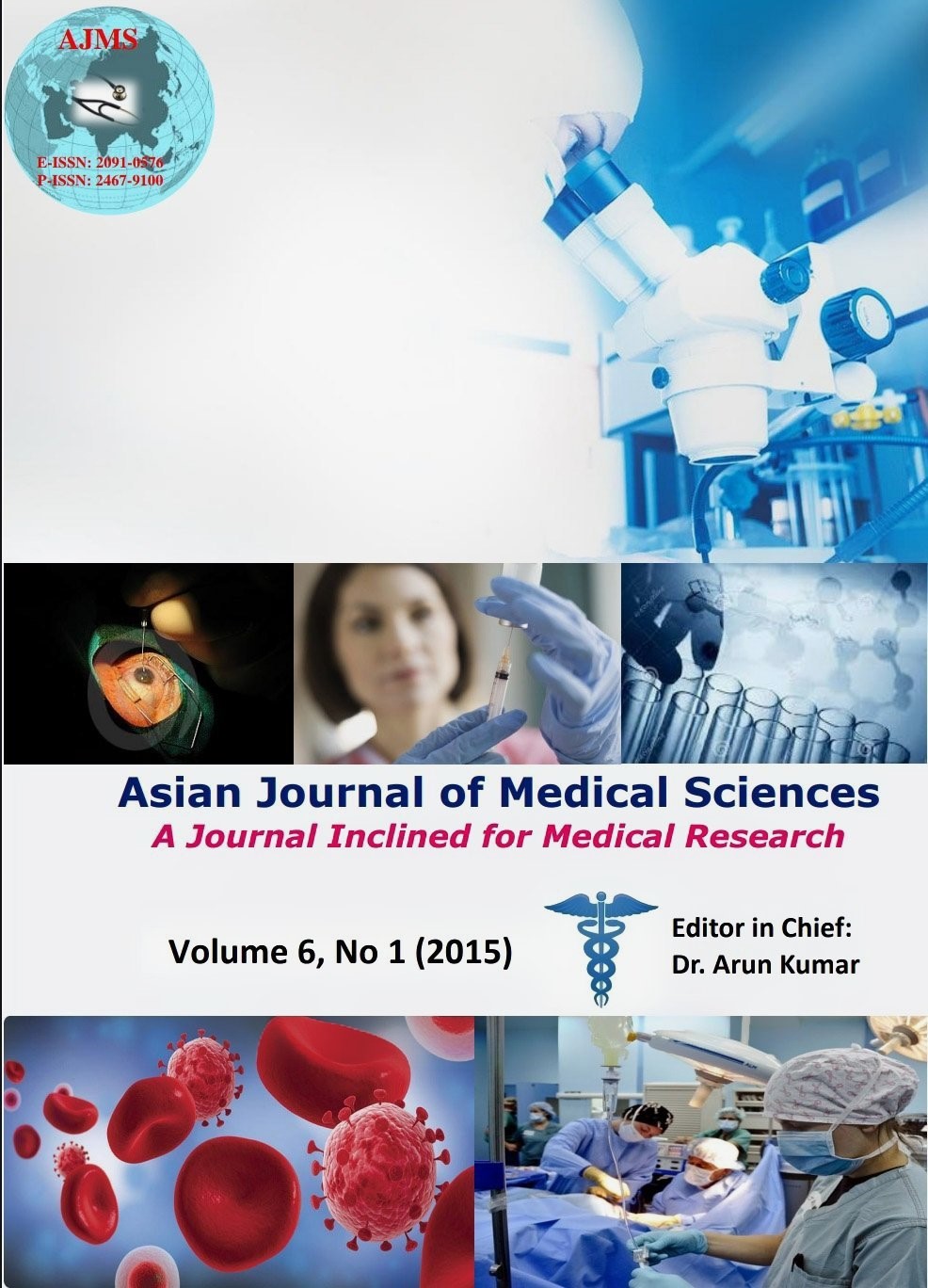Dietary factors and breast cancer: A case control study from rural India
Keywords:
Breast cancer, case-control, dietary factorsAbstract
Background: Diet, a modifiable risk factor for breast cancer is estimated approximately one-third of cases could be prevented by dietary modification.
Objectives: To identify possible dietary risk factors of breast cancer among newly diagnosed cases of breast cancer and to determine the strength of association of the risk factors and cancer of breast.
Methods: A hospital based case- control study was conducted in Satara district, India during year 2009 to 2011 among newly diagnosed cases of breast cancer and matched controls. The total number of 217 breast cancer cases and equal number of controls age, religion and residence matched were enrolled by purposive sampling technique from selected hospitals of the study area. The data was collected individually by employing pre-tested questionnaire utilizing interview method. Descriptive statistics, Odd’s ratio and chi-square test was used to find out the strength of association and statistically significant differences.
Results: Maximum, 31.80% breast cancer cases were in age group 40-49 yrs with lowest age at diagnosis of disease was 25 years. Max, 63.59%, 71.42% and 56.68% breast cancer cases were housewives, literate and from upper economic class respectively. The risk of developing breast cancer as indicated by odd’s ratio was 2.38 times higher in overweight women, 2.1 times in women consuming non-vegetarian diet, 3.9 times with women consuming extra fat in diet and 13.5 times in women with having excess salt in their diet.
Conclusion: The dietary risk factors such as non-vegetarian diet, excess fat and salt in diet and overweight was strongly associated with breast cancer.
DOI: http://dx.doi.org/10.3126/ajms.v6i1.10285
Asian Journal of Medical Sciences Vol.6(1) 2015 55-60
Downloads
Downloads
Published
How to Cite
Issue
Section
License
Authors who publish with this journal agree to the following terms:
- The journal holds copyright and publishes the work under a Creative Commons CC-BY-NC license that permits use, distribution and reprduction in any medium, provided the original work is properly cited and is not used for commercial purposes. The journal should be recognised as the original publisher of this work.
- Authors are able to enter into separate, additional contractual arrangements for the non-exclusive distribution of the journal's published version of the work (e.g., post it to an institutional repository or publish it in a book), with an acknowledgement of its initial publication in this journal.
- Authors are permitted and encouraged to post their work online (e.g., in institutional repositories or on their website) prior to and during the submission process, as it can lead to productive exchanges, as well as earlier and greater citation of published work (See The Effect of Open Access).




